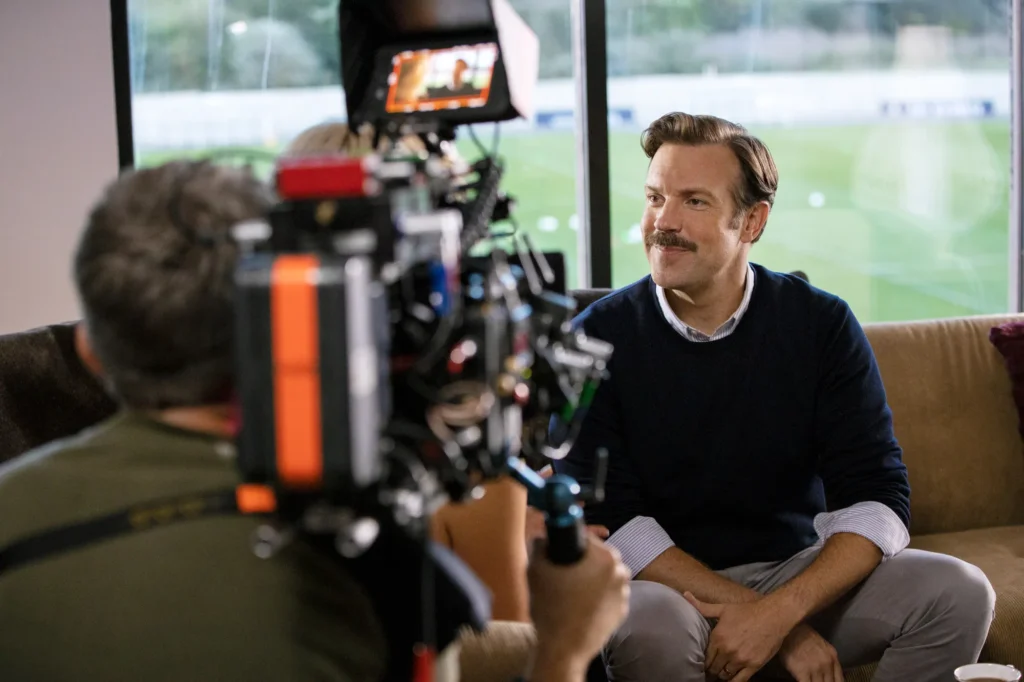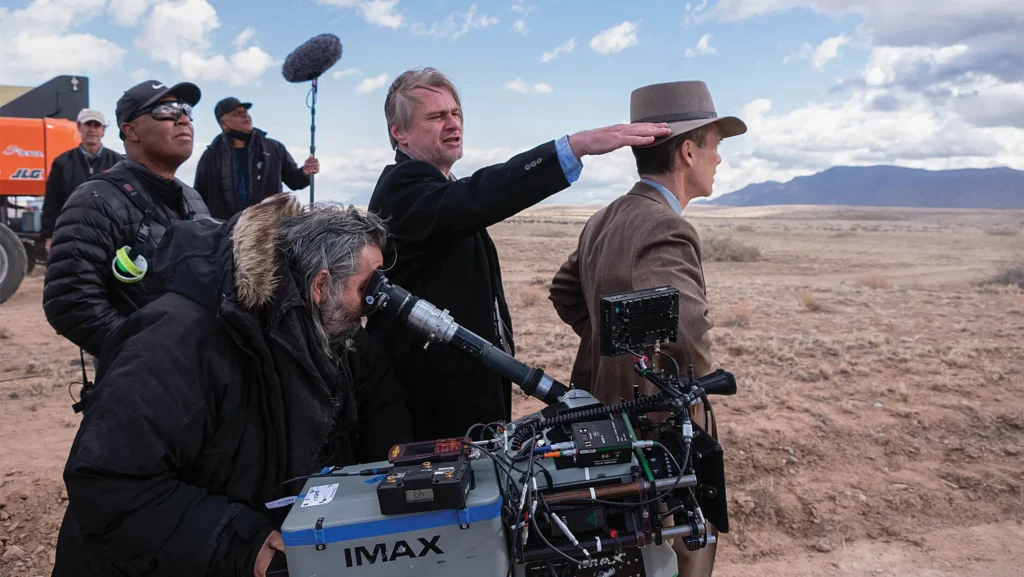We all know the director is the most talked-about person on a film set. But have you ever actually stopped to wonder what a film director does? Are they simply shouting “action” and “cut” from behind a monitor, or is there more to it?
In this blog, we’re diving into the full picture. From creative vision to day-to-day responsibilities, and even how much directors get paid in the UK, we’ll explore it all. We’ll also look at how you can become one. Whether you’re an aspiring filmmaker or just curious about what happens behind the camera, this guide will give you a clear understanding of the role.

At the heart of every great film is a director with a clear creative vision. A film director is responsible for turning a script into a living, breathing story. They shape everything you see and hear on screen, from how an actor delivers a line to the tone of the lighting in a particular scene.
They don’t do it alone. Directors work closely with the entire crew including cinematographers, production designers, costume teams, sound recordists and, of course, the actors. Their job is to bring everyone together creatively so that the finished film feels cohesive and emotionally compelling.
At Crew Studio, we’re proud to work alongside some of the UK’s finest directors across film, television and commercial projects. All are available to book through our full production and crew services.
While natural storytelling instincts are useful, directing is something you develop with practice. Here are some of the key qualities that help a director thrive on set and in the edit suite:
A clear creative vision
Directors need to imagine how the final film should look, sound and feel before a single shot is taken.
Confident leadership
They are responsible for guiding the crew and cast through the entire process. Leading with clarity and calm under pressure is essential.
Strong communication
Whether it’s shaping a performance or explaining a camera move, directors must make their ideas clear to others.
Technical awareness
Directors do not need to be experts in every department, but understanding how things like lighting, sound, lenses and editing work helps make collaboration smoother.
Flexibility and problem-solving
Schedules change. Kit breaks. Performances shift. Good directors are quick on their feet and can find creative solutions.
Emotional intelligence
Sets can be intense. The best directors create a working environment that supports creativity and trust.
A director’s role spans the entire lifecycle of a production. They are involved long before the first day of shooting and stay involved until the final version is ready for release.

In the UK, directors’ earnings vary widely depending on experience, project type and whether they are working freelance or under contract.
According to recent data from Glassdoor and Indeed, emerging film directors can expect to earn between £25,000 and £40,000 per year, typically through independent projects or assistant directing roles. Mid-level directors working in television or commercial content may earn between £50,000 and £100,000, depending on output and reputation.
For top-tier film directors, particularly those attached to major UK or international productions, fees can climb significantly. Some earn over £1 million per project, especially when working with studios that offer backend profits or usage royalties.
In commercial and branded content, fees are usually charged per day or on a project basis:
At Crew Studio, we regularly support agencies, brands and broadcasters by connecting them with experienced UK directors at every level.
There’s no set path to becoming a director, but most follow a journey that involves building practical experience, learning the craft and growing a strong network. Here are a few steps that many UK directors take.
Start making things
Short films, documentaries, music videos or content for social media — all help build your style and showreel.
Work on other people’s sets
Taking on assistant or trainee roles in different departments helps you understand the industry and make useful contacts.
Build a portfolio
A well-cut reel showcasing your work is one of the best ways to attract producers and collaborators.
Get involved with festivals and industry events
Festivals such as the BFI London Film Festival, Edinburgh International Film Festival and regional showcases are a great place to meet like-minded creatives and potential backers.
Consider formal training
Courses at institutions like the National Film and Television School or MetFilm School can give you a solid grounding and open doors to industry connections.
Use industry job boards
Websites like Mandy.com, The Knowledge, and ScreenSkills post freelance directing opportunities, especially in commercials and digital content.
Directing is one of the most creatively rewarding jobs on set. You’re shaping the story, inspiring your team, and crafting something that can connect with an audience. It takes patience, practice and passion, but for those who stick with it, the results can be extraordinary.
If you’re looking to hire a director for your next project, Crew Studio is here to help. We work with some of the UK’s best creative talent and offer full production and crew support to bring powerful stories to life.
Join The Crew. We’ll only send you exciting emails.